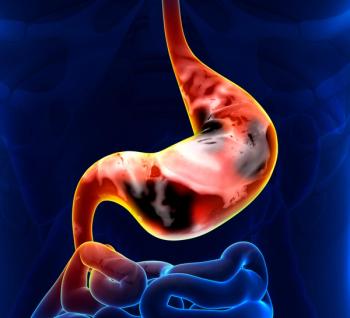
Blood Biomarker Detects Residual Disease, Recurrence Risk in Colon Cancer
Circulating tumor DNA detected after resection of stage II colon cancer appears to identify patients who are at high-risk of tumor recurrence.
Circulating tumor DNA (ctDNA) detected after resection of stage II colon cancer appears to identify patients who are at high-risk of tumor recurrence, according to a study
Circulating tumor DNA detected after surgery “provides direct evidence of residual disease,” the coauthors wrote--potentially crucial information in planning adjuvant treatments.
Because it harbors tumor-specific gene mutations, the researchers tailored the ctDNA assays to each patient’s tumor-specific mutations. Earlier research had shown that advanced-stage colorectal tumors can shed fragments of DNA into patients’ bloodstreams.
But the new study “gets us one major step closer to the real goal, because it suggests that it can detect residual disease in early-stage patients well before conventional clinical or radiologic criteria,” said coauthor Bert Vogelstein, MD, a co-director of the Ludwig Institute for Cancer Research at Johns Hopkins University, Baltimore, in a
The research team tested 1,046 plasma samples from 230 patients with resected stage II colon tumors, using massively parallel sequencing-based assays. Among 178 patients who had not undergone adjuvant chemotherapy after surgery, ctDNA was detected in 14 (7.9%); most (11 [79%]) of these patients had experienced disease recurrence at a median followup of 27 months. In contrast, only 16 (9.8%) of the 164 patients in whose postsurgical plasma samples ctDNA was not detected, experienced radiographically-confirmed disease recurrence.
The hazard ratio (HR) for recurrence among patients with versus without detected ctDNA was 18 (95% CI, 7.9-40; P < .001).
In two of six patients in whom ctDNA was detected following surgery and adjuvant chemotherapy, sequential blood samples revealed declines in ctDNA over time.
"When such a generic test is developed, it could still catch more than 90% of colorectal cancers, and it would eliminate the need to retrieve and test individual tumor samples, thus saving time, effort and money," said Ludwig investigator Peter Gibbs, MD, MBBS.
Newsletter
Stay up to date on recent advances in the multidisciplinary approach to cancer.






































